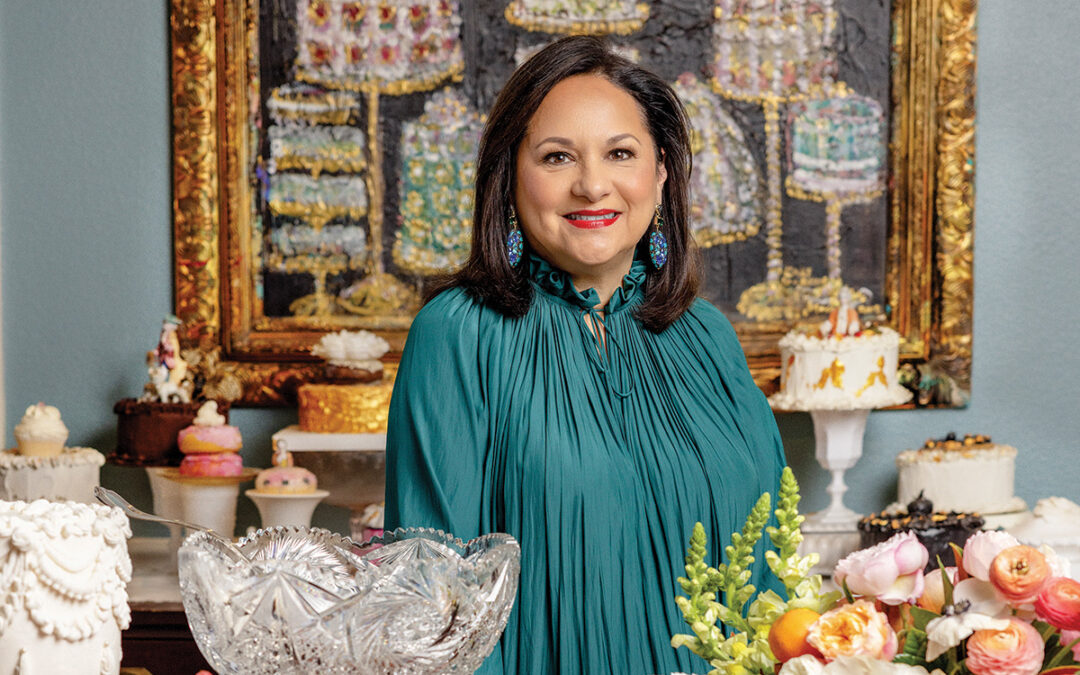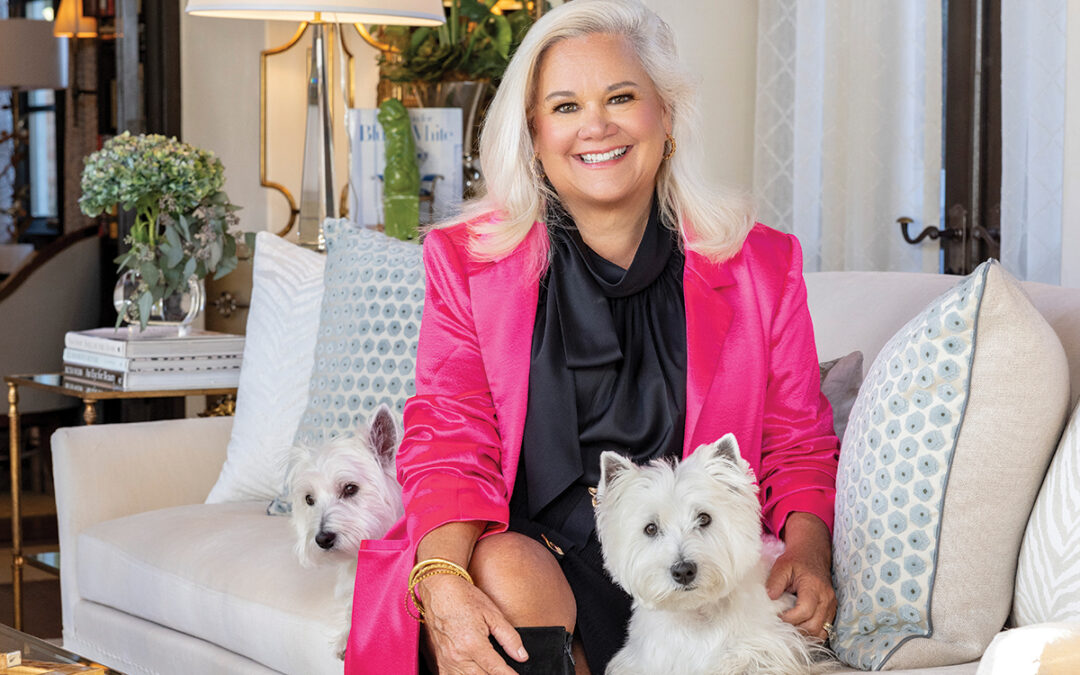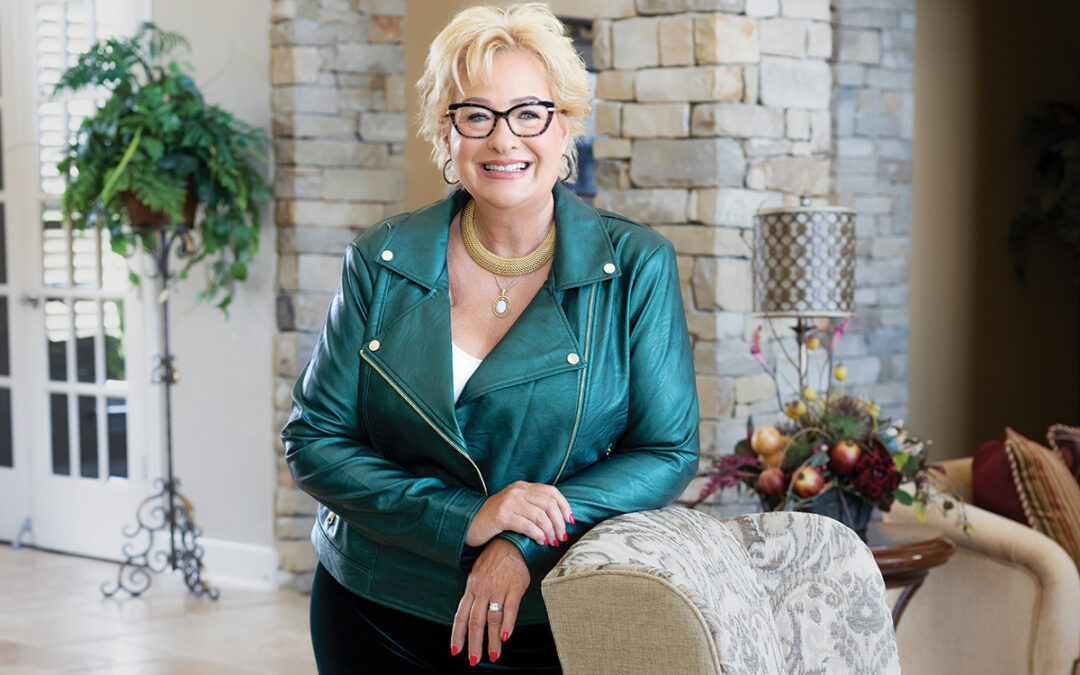Kay Chiodo knows firsthand that bread cast upon troubled waters may indeed return after many days. She has spent much of her life responding to the bread of kindness that a little group of deaf kids gave her when she needed it most, and the returns have been enormous.
“Almost everything I”ve ever learned, I owe to deaf people. I don”t know a single deaf person who is not more clever than I”ll ever be, because they have had to be,” she says.
Chiodo is president and owner of Services By Vital Signs Inc., a company she started in 1990. This business offers American Sign Language (ASL) training to companies with deaf employees and provides interpreter services for medical, legal, business and other professionals serving deaf consumers.
She also is president and chief executive officer of DeafLink, a company she established in 2002. DeafLink provides one of the most important communication tools for handicapped people since sign language, the Braille alphabet and teletypewriter (TTY) phone service. DeafLink provides video/audio Internet conferencing that enables its staff of 32 ASL interpreters to facilitate real-time communication between business, medical, governmental or other clients and the deaf persons they serve.
“Deaf people don”t want to be pitied. They want what is promised by the ADA (Americans With Disabilities Act): the same access that everyone else has to things like emergency alerts and medical, pharmaceutical and law enforcement assistance. The business community has never served the deaf and hard-of-hearing community adequately. DeafLink is like a wheelchair ramp. It enables access,” explains Chiodo.
In the past, the only option for businesses, institutions and agencies communicating with deaf people was to hire an on-site interpreter for $100 an hour (or portion thereof), plus two-way travel expenses. For 24 hours a day, seven days a week, DeafLink fills the same function for as little as $65 in equipment cost and $2-$5 a minute in usage charges.
The San Antonio Police Department, which secured a $100,000 federal grant and signed on with DeafLink in January, is the first law-enforcement department in the country to come on board. In the past, crime victims among the 116,000 members of the city”s deaf community had to make a report in writing or wait several hours for an interpreter to arrive. Now, an average of two deaf or hearing-impaired people a week walk into a police station or substation, sit down in front of a computer wired with a video camera and use ASL to communicate with an interpreter on the other end of an Internet hookup, who then relays the information back to the officer on site.
“It”s wonderful to know that a deaf person is able to go into a police station and report a rape or a missing child without having to wait two or three hours,” Chiodo says.
In August, San Antonio”s University Health System became a DeafLink subscriber. It was the first health system in the country to do so. “In health care situations, communication can mean the difference between life and death,” says David Correa, the health system”s director of patient satisfaction.
“DeafLink is much more cost-effective and time-efficient than an on-site interpreter,” Correa says. “It will save the health system tens of thousands of dollars a year in translation costs and worker productivity, since there is no waiting for interpreters to drive to the hospital or clinic. And in emergency and trauma situations this service could absolutely help our doctors and nurses make critical decisions rapidly and save lives.”
For her innovations, Chiodo was recognized by the San Antonio chapter of the National Association of Women Business Owners with a 2004 Entrepreneurial Spirit Award.
An unlikely beginning
Kay Chiodo”s indomitable spirit was the only thing in her early life that even suggested she might grow up to accomplish any of these things. She was a tiny, cherubic child with dimpled cheeks when she was born in Little Rock, Ark., two days before Christmas 1953. Her mother was not around a lot of the time, so Kay survived her childhood by hook or by crook and by the kindness of her maternal grandmother, Willie Lea.
“The only things I had in my childhood that were not hand-me-downs were the morals I got from my grandmother,” Kay says. Some of her grandmother”s wise words have stayed with her all of her life:
“Never give something a lick and promise. Do it right the first time, and you won”t have to do it over.”
“Bad situations don”t always make bad people.”
“You can learn good things, even from bad people.”
But Willie Lea had a very large family, and even by herself, Kay would have been a high-spirited handful. When she was 9 years old, she and her 14-year-old sister, Phyllis, were hauled before a judge, made wards of the state and sent to a Baptist orphanage. The battle lines were drawn when Kay defiantly — and untruthfully — told them immediately that she was Catholic.
“I wasn”t a “real” orphan, so I didn”t fit in real well with the other children,” Kay explains. Besides, most of the “real” orphans were cautious about spending time with Kay and getting roped into the punishments that often were meted out to her. Many of the pranks, which doubtless masked a towering rage at the hand life had dealt her, took place in the kitchen, because she was on almost perpetual scullery duty for flouting the rules. “My thumbs were always purple from shelling peas,” she recalls.
She established a dog wash on the dishwasher conveyer by turning the temperature down and putting the dogs through it. She started a food-to-go business out of the back door of the kitchen, reasoning that the food was provided for the orphans, so it was hers to sell. One night, armed with a pair of scissors, she slipped out to the clothesline where the house parents” laundry had been left to dry, and she cut the backs out of all of their underwear.
“I was the only kid who was locked away, out of sight, anytime visitors came to the orphanage,” she says.
The deaf orphans were not housed with the general population in the big three-story building. They lived next door with a caretaker, who home-schooled them. The day Kay made contact with them was life-changing for her. She didn”t have to prove anything to these kids. There was instant rapport. They were outsiders, and so was she. They became her best — and only — friends. They taught her sign language, and she experienced the satisfaction of doing something good for someone else. “When they taught me to sign, they gave me something of value, something that made me feel unique,” she says.
When the deaf kids were treated to a shopping trip or an outing at the circus, she was allowed to go along and interpret. Then, at the age of 12, Kay”s antics got her expelled from the orphanage. “I was the first female child the orphanage ever had removed,” she recalls.
She was sent to reform school, where her high spirits, her devilish ways and her tiny stature were no match for the hardened inmates, some of whom had been convicted of murder. She was there only six months. She was beaten up many times before the authorities responded to letters written by the infirmary nurse. They removed Kay and allowed her to live with one of her seven aunts.
“I wanted to be home, but I didn”t know where home was,” she says.
Her longing for somewhere to belong led Kay into an early marriage, which failed, and motherhood, which she describes as “the coolest thing I could ever be. That”s what it”s like when you”ve never had anyone who belongs to you. I just loved playing house and being a mom,” she says. She used the ASL alphabet when she drilled her kids on their spelling words.
Despite all the ups and downs in her life, Kay got an education. She attended high school in Cabot, Ark., pursued a degree in behavior science/psychology at Little Rock University and graduated in 1979 from the American College of Real Estate/Real Estate Law. For several years she turned her attention away from the world of the deaf. “Life happened,” she explains. She went into modeling, sales, freelance promotional work and convention coordinating, most notably for Vivian Industrial Plastics in Vivian, La., and the Chrysler Corp. in San Antonio.
In 1987 she returned to the thing that had convinced her that she was a person of worth. She attended ASL classes at St. Philip”s College and San Antonio College. In 1997 she was certified by the state of Texas as an interpreter for the deaf.
An effective way to serve others
In response to Hurricane Katrina, DeafLink, at its own expense, set up shop in the San Antonio disaster relief centers, along with two centers in Houston and two in Dallas. “There was a deaf man in one of the shelters who had no food. He saw policemen standing near the food tables, and there was no interpreter to tell him it was there for everyone, so he was afraid he would be arrested if he took any of it. All he had to eat was what someone brought to him,” recalls Chiodo.
An agreement has been struck with Jack Colley, state coordinator for the Governor”s Division of Emergency Management, for DeafLink to provide emergency alerts and other information to citizens with special needs.
“Texas will be setting a precedent for the rest of the nation on how to provide life-saving information to persons who are deaf or blind or deaf and blind,” Chiodo says. “Advisories of severe thunderstorms and hazardous spill evacuations or such things as school closings can be communicated on a state or local level through Braille readers and ASL interpreters.”
DeafLink has caught the attention of the cities of Henderson, Dallas, Houston, Little Rock, Ark., and North Las Vegas, Nev.— and the office of California Gov. Arnold Schwarzenegger. The Web site,www.deaflink.com, gets 50,000 hits a month.
To date, DeafLink”s largest group of business clients is Re/Max real estate affiliates. In October 2004, the Schrader Group of Re/Max North-San Antonio, headed by Dayton Schrader, was the first real estate brokerage firm to become 100 percent DeafLink accessible. Since then, Re/Max firms in three other Texas cities, along with brokers in New Jersey, Washington, Maryland and Arizona, have followed suit.
“Before, when I dealt with deaf clients, we had to rely on smiles and family members who acted as interpreters,” he says. If Schrader has his way, all 5,000 Re/Max offices across the country will be hooked up to DeafLink “It all started with a group of deaf kids who said, “This is the way we want the world to be,” Chiodo says. “It feels good to be giving back to someone who once lent me a shoulder.”
Chiodo has three children: two daughters, Shay Embrey and Kari Rusk, and a son, Tyler Chiodo. She also has eight grandchildren. Kay and her husband, Dan Heller, have been together for eight years.
“I have all the things I ever really wanted,” she says. “On your trip through life you can learn something from everyone you meet. Hold it in the back of your mind. It can come in handy.”
Author: Susan Sheffloe Speer
Photographer: Liz Garza Williams









0 Comments